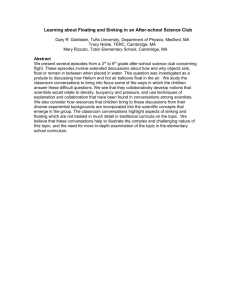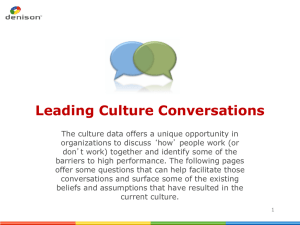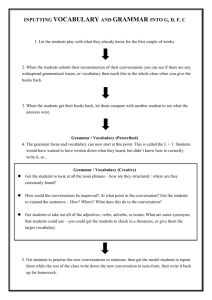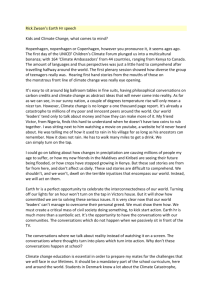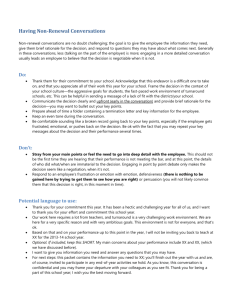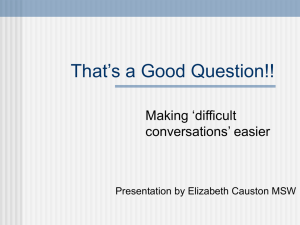Interaction Involvement Scale*
advertisement
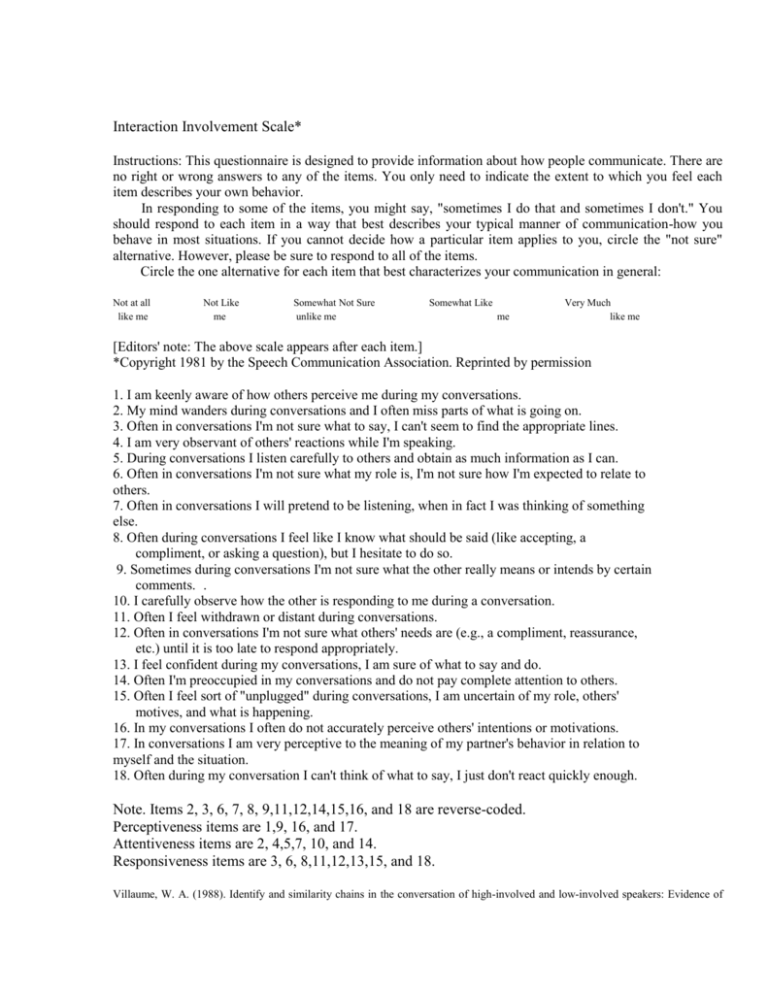
Interaction Involvement Scale* Instructions: This questionnaire is designed to provide information about how people communicate. There are no right or wrong answers to any of the items. You only need to indicate the extent to which you feel each item describes your own behavior. In responding to some of the items, you might say, "sometimes I do that and sometimes I don't." You should respond to each item in a way that best describes your typical manner of communication-how you behave in most situations. If you cannot decide how a particular item applies to you, circle the "not sure" alternative. However, please be sure to respond to all of the items. Circle the one alternative for each item that best characterizes your communication in general: Not at all like me Not Like me Somewhat Not Sure unlike me Somewhat Like me Very Much like me [Editors' note: The above scale appears after each item.] *Copyright 1981 by the Speech Communication Association. Reprinted by permission 1. I am keenly aware of how others perceive me during my conversations. 2. My mind wanders during conversations and I often miss parts of what is going on. 3. Often in conversations I'm not sure what to say, I can't seem to find the appropriate lines. 4. I am very observant of others' reactions while I'm speaking. 5. During conversations I listen carefully to others and obtain as much information as I can. 6. Often in conversations I'm not sure what my role is, I'm not sure how I'm expected to relate to others. 7. Often in conversations I will pretend to be listening, when in fact I was thinking of something else. 8. Often during conversations I feel like I know what should be said (like accepting, a compliment, or asking a question), but I hesitate to do so. 9. Sometimes during conversations I'm not sure what the other really means or intends by certain comments. . 10. I carefully observe how the other is responding to me during a conversation. 11. Often I feel withdrawn or distant during conversations. 12. Often in conversations I'm not sure what others' needs are (e.g., a compliment, reassurance, etc.) until it is too late to respond appropriately. 13. I feel confident during my conversations, I am sure of what to say and do. 14. Often I'm preoccupied in my conversations and do not pay complete attention to others. 15. Often I feel sort of "unplugged" during conversations, I am uncertain of my role, others' motives, and what is happening. 16. In my conversations I often do not accurately perceive others' intentions or motivations. 17. In conversations I am very perceptive to the meaning of my partner's behavior in relation to myself and the situation. 18. Often during my conversation I can't think of what to say, I just don't react quickly enough. Note. Items 2, 3, 6, 7, 8, 9,11,12,14,15,16, and 18 are reverse-coded. Perceptiveness items are 1,9, 16, and 17. Attentiveness items are 2, 4,5,7, 10, and 14. Responsiveness items are 3, 6, 8,11,12,13,15, and 18. Villaume, W. A. (1988). Identify and similarity chains in the conversation of high-involved and low-involved speakers: Evidence of integrated discourse strategies. Western Journal o/Speech Communication, 52, 185-202. Villaume, W. A., & Cegala, D. J. (1988). Interaction involvement and discourse strategies: The patterned usage of cohesive devices in conversation. Communication Monographs, 55,22-40. Villaume, W. A., Jackson, J., & Goldsmith Schouten, T. (1989). Issue-event extensions and interaction involvement: Text-based and meaning-based discourse strategies. Human Communication Research, 15,407-427.
